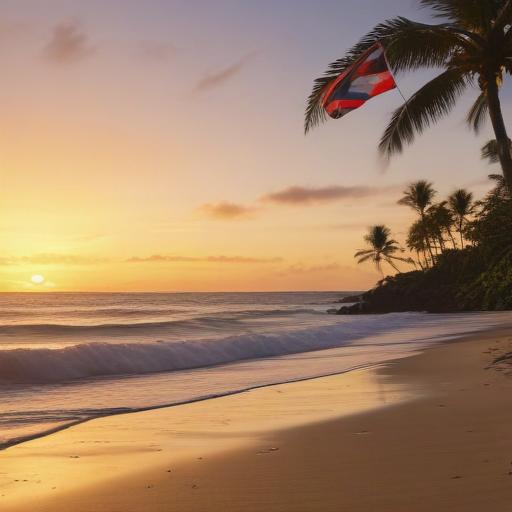Mark Zuckerberg’s journey in acquiring land in Hawaii has evolved significantly since his initial purchase of 700 acres on Kauai’s scenic north shore in 2014 for $100 million. Over the years, this estate has grown into the sprawling 2,300-acre Koʻolau Ranch, marking it as one of the most extensive private properties in the region.
Initially grabbing headlines, Zuckerberg’s acquisition was merely the beginning of a decade-long process that saw him accumulate additional adjoining parcels, which often went unnoticed until after the purchases were finalized. The result is a luxurious and heavily secured estate featuring custom-built homes, agricultural facilities, and advanced sustainability infrastructure, all set against stunning vistas of rainforest and the Pacific Ocean.
However, this transformation has sparked considerable debate over the implications of billionaire land ownership in Hawaii. Critics express concern that such developments might symbolize a loss of cultural identity and an encroachment on native land rights. Many Native Hawaiians perceive Zuckerberg’s expansive estate, despite its sustainability efforts, as a stark reminder of community displacement in favor of private luxury.
Zuckerberg’s Koʻolau Ranch is not just a retreat but a fortified compound that reportedly includes multiple structures, agricultural land, and cutting-edge security features. The estate is so valuable that comparisons have been drawn between its worth and Kauai’s annual public infrastructure budget. Investigative reports and drone footage illustrate a high-tech refuge, which includes two expansive mansions connected by underground tunnels, guesthouses, a gym, and a fortified underground bunker.
The public response to Zuckerberg’s land acquisitions reflects a broader societal concern about the growing divide between wealthy property owners and local communities. While some admire these estates as sustainable retreats, others lament the ripple effects on land accessibility, cultural preservation, and rising property prices.
The debate surrounding Koʻolau Ranch highlights the tension between technological advancement and community integrity, prompting essential discussions about land ownership and governance in Hawaii. As more billionaires invest in private sanctuaries, the question remains: could these developments foster innovative living solutions, or do they deepen divisions that hinder community cohesion?
